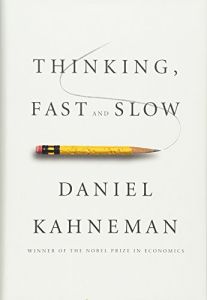The topics that Nobel Prize winner Daniel Kahneman addresses are both complex and integral to the human mind: He asks you to think about thinking by considering how your mind habitually contradicts itself, distorts data, and misleads you. His prose is lucid, his reasoning is rigorous, and his honesty is refreshing – more than once Kahneman illustrates conflicted thinking with examples from his own life. The result is not a fast read, but it’s an ultimately rewarding experience that provides lasting illumination.
People use two interactive cognitive systems. “System 1” works easily and automatically; it makes quick judgments based on familiar patterns.
When you have to make sense of something, you think about it. To understand this process, consider a model that says people apply two cognitive systems.
“System 1” is the mental processing function that reads emotions and handles automatic skills, like driving your car or adding two plus two. System 1 takes over your thinking when you set out to comprehend simple statements (such as “complete the phrase ‘bread and . . .”), instinctively turn to see where a noise is coming from, or grimace when you see a gruesome image. System 1 supplies associated meanings (including stereotypes) rapidly and involuntarily.
“System 2” takes more effort; it requires intense focus and operates methodically.
By contrast, you use “System 2” when you focus on specific details, like counting or figuring out how to complete your income tax forms. System 2 applies effort consciously, such as when you do complicated math, try new physical activities, or search for a specific person in a crowd. System ...









Comment on this summary